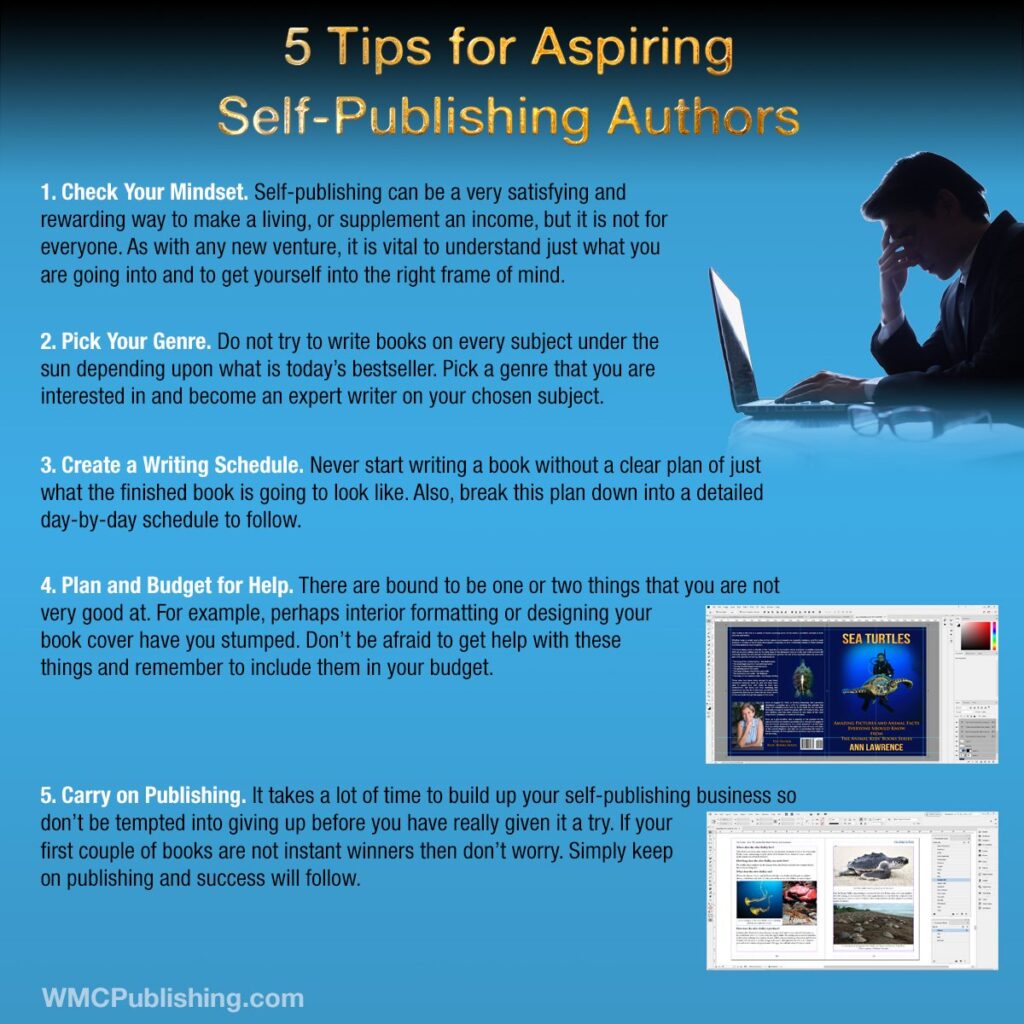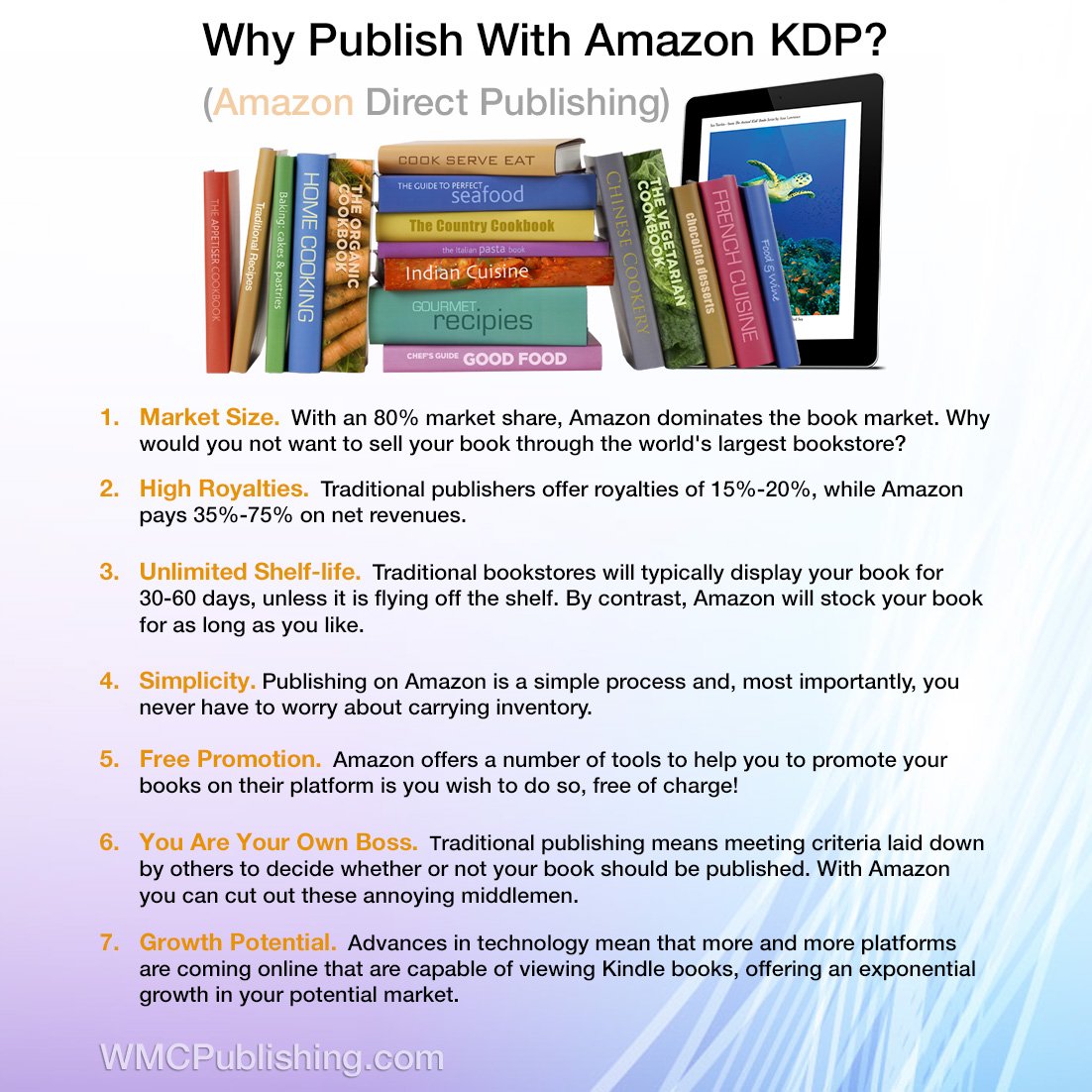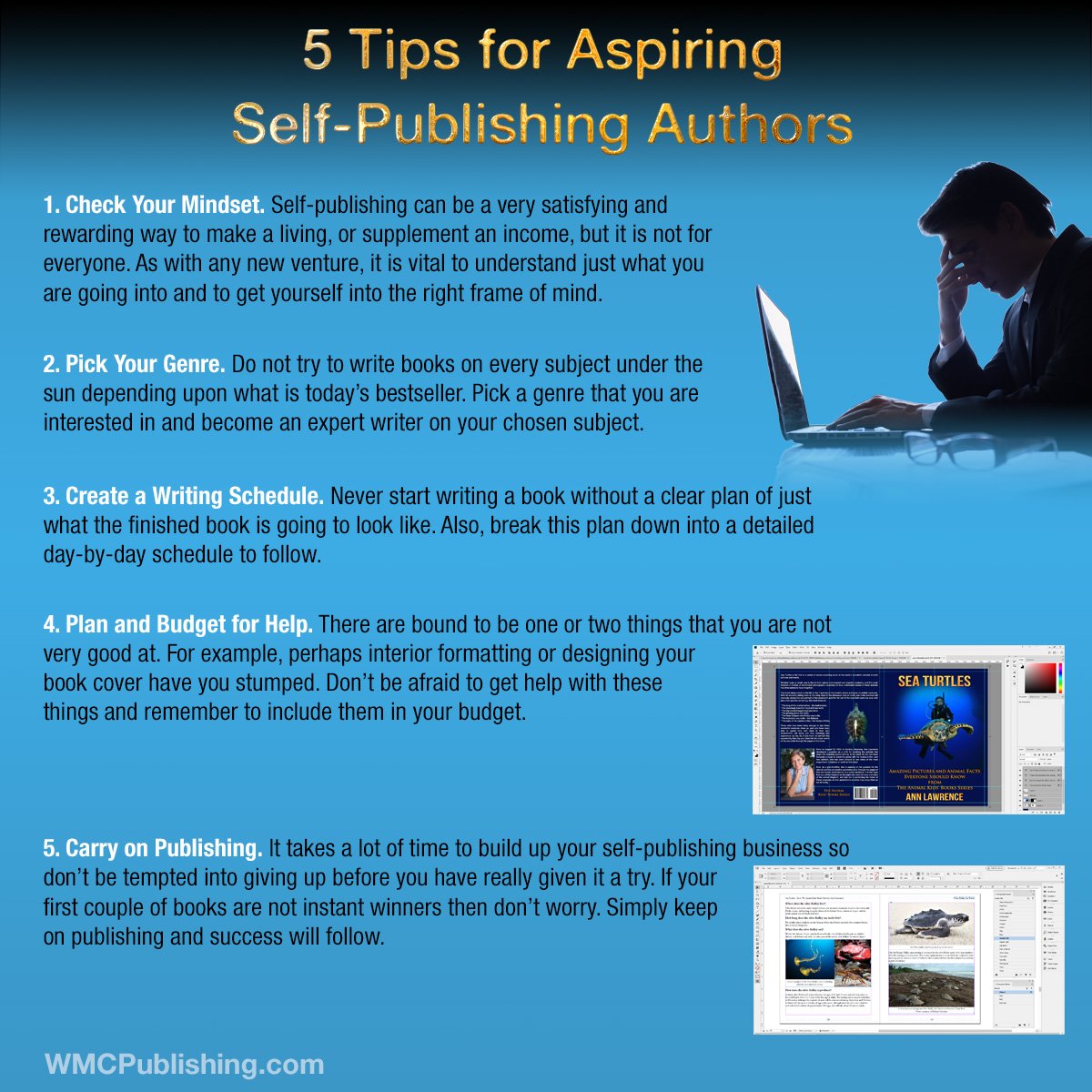
Your book cover plays an important role when it comes to selling your book and yet, all too often, authors

1. Check Your Mindset
It is important when embarking on any new venture to ensure that you know exactly what you are getting yourself into and that you take positive steps to get yourself into the right frame of mind at the outset. Do your research and make sure that you understand just what self-publishing entails. More importantly, think about just how your new job will effect your lifestyle and that of your family. Hitting a home run with your first book is a bit like winning the lottery – it is something that always seems to happen to someone else. Making money from publishing these days is a volume game. You will win some and you will lose some but, as long as you keep going, you will succeed. For most people getting up and running, and pressing on when things are not going your way, means developing the right mindset from the outset.
2. Pick Your Genre
Take the time to decide just what sort of books you want to write. A common problem today is authors who end up being jacks of all trades and masters of none because they spend their time chasing the latest shiny object. Anyone who is familiar with the world of Internet Marketing will know that today’s money making venture will have disappeared by the end of the month, to be replaced with something else. This, in turn, will last for another month before it is replaced. Unfortunately, the same is true of the publishing world and it is all too easy to hop from one latest bestseller trend to the next. Don’t do it.
Pick a genre or niche, whether fiction or non-fiction, which you are interested in and learn everything you can about it. As an expert in a field you enjoy you will find it easy to start putting your thoughts down on paper.
3. Create a Writing Schedule
One of the biggest mistakes that many new authors make is to simply sit down and start writing their first book. Three months later, when they are stuck on chapter 3, many then give up saying that “this is never going to make me money”. You must have a plan, no matter how simple the book seems, and you have to break this plan down into a day-by-day writing schedule. This schedule must be realistic, but it should also be challenging. One important consideration when compiling your schedule is what your daily word count should be. This will vary from one writer to the next, and is also dependent on the type of book you are writing. It is nonetheless important to set yourself a daily word count target and discipline yourself to write each day until your target is met.
4. Plan and Budget for Help
Getting a book’s content down on paper is one thing, but getting everything “print ready” may mean that you need a little help. You may, for example, need someone to proofread your manuscript. You will be surprised how often you can read your own mistakes and not see them because your mind sees what you want it to see, rather than what is actually in front of your eyes. You may also need help with such things as formatting your book, including preparing and adding images and, of course, designing your book cover. Be clear about what you can do yourself and what you will need to ask someone else to do for you. A traditional publishing house will charge you a fortune for any of these additional services but, in this modern Internet era, it is not too difficult to find high quality help at very affordable prices.
5. Carry on Publishing
It takes time to build up steam in your self-publishing boiler so give your new business engine the time it needs to reach its operating pressure. It might seem like a crazy thing to say, but don’t worry too much about sales in your first few months. Some books will do well right out of the gate, while others may lay dormant for weeks before sales start to come in, and slowly pick up. Some books will also flop. You might be surprised to learn that most self-publishers have one book, and often several book, that have never sold a single copy.
As long as you do your research, write quality books and keep at it long enough to get up a head of steam, your efforts will be rewarded.

Your book cover plays an important role when it comes to selling your book and yet, all too often, authors

1. Market Size. With an enormous 80% market share, Amazon dominates the book market. While there are a lot of

The history of the kakuro puzzle is similar to that of the sudoku puzzle in the sense that, despite its

1. Check Your Mindset It is important when embarking on any new venture to ensure that you know exactly what